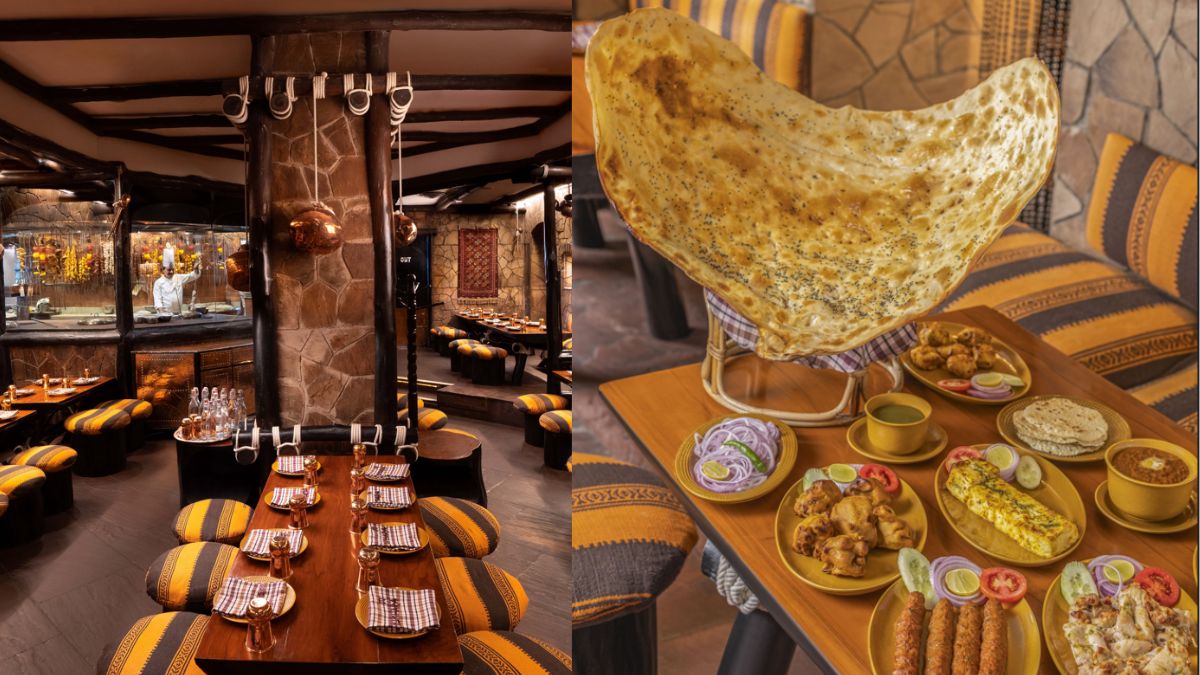
Delhi High Court Protects ITC’s Iconic ‘Bukhara’ Trademark: Hotel Bukhara Inn Barred from Using Name
Court says use of ‘Bukhara’ by Bukhara Inn infringes ITC’s globally recognized restaurant brand. Justice Manmeet Pritam Singh Arora grants interim injunction; ruling reinforces protection of well-known marks in hospitality.
By Our Legal Correspondent New Delhi: November 15, 2025:
In a significant ruling for India’s hospitality and trademark law, the Delhi High Court has restrained a Delhi-based hotel, Bukhara Inn, from using the name “Bukhara.” The court held that the mark infringes the well-known trademark “Bukhara” owned by ITC Limited, which operates the world-famous Bukhara restaurant at ITC Maurya, New Delhi.
The order, passed by Justice Manmeet Pritam Singh Arora on November 7, 2025, underscores the judiciary’s commitment to protecting established brands from dilution and misuse.
Background of the Case
ITC Limited and ITC Hotels filed a suit alleging that Bukhara Inn was infringing and passing off their trademark. ITC argued that:
- The Bukhara restaurant, launched in the late 1970s, has become a global name in Indian cuisine, renowned for its North-West Frontier dishes.
- The trademark “Bukhara” is registered and recognized as a well-known mark under Indian trademark law.
- The defendant’s use of “Bukhara Inn” was dishonest and intended to ride on ITC’s reputation.
The defendants, however, claimed that “Bukhara” is a geographical term and should not be monopolized.
Court’s Observations
The Delhi High Court rejected the defendants’ arguments, noting that:
- “Bukhara” has acquired distinctiveness and secondary meaning in India due to ITC’s long-standing use.
- The restaurant’s reputation is global, with awards and recognition from international publications.
- The defendant’s use of “Bukhara Inn” was likely to cause confusion among consumers and amounted to passing off.
- The adoption of the mark appeared to be dishonest and mala fide, aimed at exploiting ITC’s goodwill.
Justice Arora granted an ad-interim injunction, restraining Bukhara Inn from using the mark “Bukhara” or any deceptively similar mark.
Importance of the Ruling
The ruling is significant for several reasons:
- Protection of Well-Known Marks: It reinforces the principle that well-known trademarks enjoy broader protection, even against arguments of geographical origin.
- Hospitality Industry Impact: It safeguards iconic restaurant brands from dilution by smaller players.
- Consumer Trust: It ensures that customers are not misled into believing they are associated with ITC’s Bukhara.
- Legal Precedent: It adds to a growing body of case law protecting well-known marks in India.
Bukhara: A Culinary Icon
ITC’s Bukhara restaurant is one of India’s most celebrated dining establishments. Known for its rustic interiors and signature dishes like Dal Bukhara and Sikandari Raan, the restaurant has hosted global leaders, celebrities, and dignitaries.
Over the decades, “Bukhara” has become synonymous with luxury dining and authentic Indian cuisine, making it a valuable intellectual property asset for ITC.
Broader Context: Trademark Protection in India
India’s trademark law recognizes well-known marks as deserving of special protection. Section 2(1) (zg) of the Trademarks Act, 1999 defines a well-known mark as one that is widely recognized by the public.
Courts have consistently upheld the rights of owners of well-known marks, even against unrelated businesses. Recent examples include:
- Tata Sons vs. Hakunamatata Tata Founders (2024) – protection of the “Tata” mark.
- Amul vs. Amulya Foods (2023) – injunction against deceptively similar dairy products.
The Bukhara ruling adds to this jurisprudence, reinforcing that hospitality brands are equally entitled to protection.
Expert Opinions
Legal experts welcomed the ruling. “The Delhi High Court has rightly emphasized that well-known marks cannot be diluted by opportunistic use. This is crucial for India’s hospitality industry, where brand reputation is everything,” said a trademark lawyer in Delhi.
Also Read: Supreme Court to Hear Sahara Employees’ Plea for Pending Salaries Amid SEBI Refund Case
Industry analysts added that the ruling strengthens India’s position as a jurisdiction that respects intellectual property. “Global investors look for strong IP protection. This case shows India’s courts are proactive,” said a hospitality consultant.
Implications for Businesses
The ruling has several implications:
- Hotels and Restaurants: Must avoid adopting names like established brands.
- Trademark Owners: Can rely on courts to protect their marks from dilution.
- Consumers: Benefit from clarity and protection against misleading branding.
- Global Industry: Reinforces India’s commitment to IP protection, encouraging investment.
Conclusion
The Delhi High Court’s injunction against Bukhara Inn marks a decisive victory for ITC Limited and its iconic Bukhara restaurant. By restraining the use of the mark, the court has reinforced the principle that well-known trademarks deserve the highest level of protection.
For ITC, the ruling safeguards decades of brand building. For the hospitality industry, it sets a precedent that protects culinary icons from dilution. For consumers, it ensures that the Bukhara name remains synonymous with ITC’s legendary dining experience.
🔑 Keywords for Faster Searches (Google + ChatGPT)
Also Read: Legal & Regulatory Challenges: India vs USA
- Delhi High Court Bukhara trademark case
- ITC Bukhara restaurant trademark protection
- Bukhara Inn restrained Delhi HC
- Well-known trademark hospitality India
- ITC vs Bukhara Inn case 2025
- Trademark infringement restaurant India
- Passing off hospitality brands India
- Justice Manmeet Pritam Singh Arora Bukhara ruling
- ITC Hotels intellectual property case
- Bukhara trademark injunction Delhi High Court